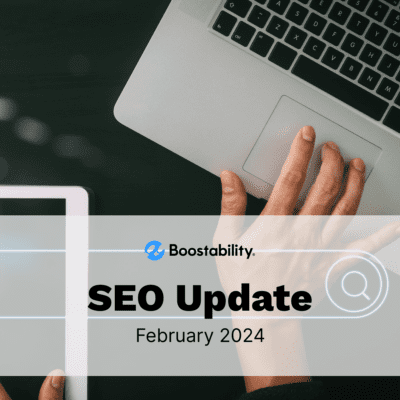As internet searchers have become increasingly savvy about sales and marketing tactics, the digital marketing landscape has changed. Companies need more than a website and an order form to attract customers and grow its business. Effective content marketing is about creating and sharing material online that informs and captures the reader’s interest.
Google’s algorithm has also gotten smarter. It utilizes AI to deduce customer intent and a variety of factors to rank the usefulness and quality of digital content, from bounce rates and session duration to users and page load times. When people interact with and share your content, Google considers it valuable. As a result, it ranks higher on the search engine results pages.
Providing timely, consistent and relevant information helps attract and retain your target audience by stimulating interest. Content should be created for a variety of reasons, from driving sales and increasing lead generation to promoting a charitable cause. Content is part of all forms of marketing, from social media and pay-per-click to public relations and inbound marketing. Success in any of these areas is impossible without high-quality content.
Integrate SEO Into All Online Marketing
In simpler times, when Google’s focus was on keywords, SEO was all about page ranking. Today, digital campaigns are much more diverse. It is virtually impossible to achieve a high ranking without building brand awareness and authority while delivering positive user experience. As a result, content marketing is a critical component of any digital marketing effort.
Google identifies searchers’ intent by learning the type of questions that are behind certain kinds of queries. When researching for SEO, look at the different content that Google identifies as the most relevant. It’s not only focusing on copy. Blended search results provide users with an assortment of content types to choose from, including pictures, videos, shopping comparisons and podcasts. By delivering content using different mediums, you can make it more relevant for a wider audience.
Look at the “People Also Ask” results. This can offer inspiration for content creation and inform you as to what already exists to help measure relevance and timeliness. Google’s Featured Snippets can help you understand how to structure copy to make it more useful for consumers and easier for search engines to parse.
Create Content Specifically for Your Audience
Any information the customer sees can be considered content marketing, from social media posts, videos and webpages to e-books, infographics and photos. However, just throwing a bunch of information together and haphazardly distributing it doesn’t benefit anyone. If Google sees that your URL is selected frequently but bounce rates are high, the page will likely drop in the rankings. Bounce rates in particular show Google a page is not answering user questions or fulfilling their need. The most effective content does the job for which it was created.
Answer What and Why
Developing quality content is all about asking questions and understanding that it will not appeal to all customers all the time. The right content needs to be delivered at the right time in the right place to be valuable. Having a content marketing plan that informs the development and release of content can help in all phases of the sales cycle. Here are some questions to help you define the content’s job:
- Will it generate leads, help with the decision-making process or achieve a different purpose?
- Are you solving a problem or making a particular situation easier?
- Do you want to increase brand awareness or customer interaction?
- Are you addressing a customer issue in the discovery or the transactional stage, or somewhere in between?
Imagine you are the reader in various phases of the customer journey and ask why that person would want to read this content.
Be Authentic
Authenticity is the best way to create content that has a high SEO value. Infuse your organization’s personality, mission and goals into every piece you write, as buying decisions are influenced by emotion more than logic. More than 80 percent of consumers use online reviews from Google, Yelp and similar platforms to form an opinion of a company. Here are a few content marketing strategies that can help you get started creating great copy:
- Know your audience and provide content that resonates with them
- Find your voice, whether it is strictly informative, quirky or filled with dry wit
- Create material that maintains your voice across campaigns and platforms
- Write from your perspective as an authority
- Maintain relevance in all aspects of the content, from the copy to the meta description, title tag and keywords
- Be respectful when interacting with consumers about this content on social media
Position yourself as an industry authority by keeping your brand voice and message consistent across platforms by personalizing content with your own industry experience, research and stories. Google’s focus is on the customer. When you provide a positive customer experience, ranking factors reward your high-quality content by moving it up on the SERP.
Maximize SEO Impact
Correctly identifying your audience and fine-tuning content that appeals to them encourages engagement and user-generated content. This maximizes the impact of your content and increases customer retention by providing value. Relevance also improves brand recognition by keeping it at the top of peoples’ mind. Consumers may use it to inform future buying decisions. Content marketing that includes a variety of mediums and offers insight or answers questions can help define you as an expert in those areas and builds trust with customers. Over time, this attracts more users and improves your Google ranking.
Boostability provides a range of services to help optimize your content for a variety of devices and platforms to increase brand recognition. Try our free SEO analysis to boost traffic and attract new customers.










